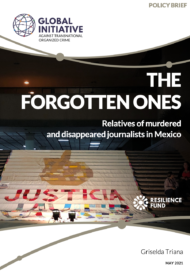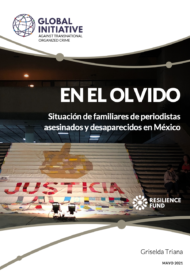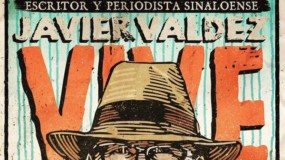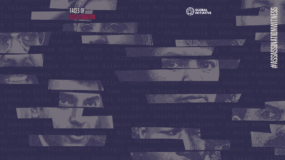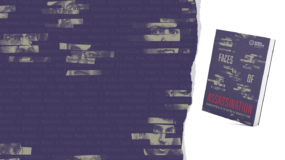Mexico is considered one of the most high-risk countries for journalism, a place where denouncing organized crime costs people their lives. Journalists there are harassed, threatened, ‘disappeared’ and murdered.
The wave of violence, especially against journalists, permeates the lives of people at all socio-economic levels. This paper shows the impact that this violence has on the personal experiences of families of murdered and disappeared journalists, and reveals the lack of support they face. It also advocates for effective public policies for the state to protect, inform and aid victims.
Key points:
- The threats, harassment and intimidation journalists face also affect their children, partners and parents both as a result of the violence itself and when investigations are subsequently carried out.
- Labour standards in the field of journalism do not recognize employees’ rights to social security benefits, which, in turn, affects the rights of their children and families.
- The lax implementation of laws meant to protect victims affected by the murder or disappearance of journalists mainly infringes on the rights to truth, justice and full redress.
- Cuts to public funding for victims as well as public policy that is susceptible to corruption and that allows crimes to be committed with impunity weaken the commitments Mexico has made in international treaties.
- Mexico sees to only some of the needs of the families of murdered and disappeared journalists, and individual and collective support networks are scarce.
This publication is the result of a project developed by Griselda Triana with a grant of the Resilience Fund. Claudia Liza Corona de la Pena, professor at the Universidad Nacional Autonoma de Mexico recognized for her experience in human rights issues, designed the methodology, conducted interviews and developed tools for data analysis. The project also had the invaluable support of Balbina Flores Martinez, correspondent and representative of Reporters Without Borders in Mexico, who has been documenting attacks against the press and assisting victims for more than a decade.
México es considerado uno de los países de más alto riesgo para la prensa, donde denunciar al crimen organizado se paga con la vida. Periodistas en el país son acosados, amenazados, desaparecidos y asesinados.
La ola de violencia, en particular aquella contra quienes ejercen el periodismo, permea lo más íntimo de las personas en cualquier nivel socioeconómico. Este informe demuestra el impacto que esto tiene en las familias de periodistas asesinados o desaparecidos y las condiciones de abandono en las que se encuentran, y aboga por políticas públicas efectivas de protección, información y apoyo a las víctimas por parte del Estado.
Claves
- Las amenazas, hostigamiento e intimidación que sufren los periodistas alcanzan a sus hijos, parejas y padres cuando aquellos sufren una agresión y se inician las investigaciones.
- Las condiciones laborales de la prensa desconocen los derechos de seguridad social y patrimonial de quienes ejercen el periodismo, afectando a su vez los derechos de sus hijos y familia.
- La deficiente aplicación de las leyes de protección a favor de las víctimas por asesinato o desaparición de periodistas trastoca principalmente el derecho a la verdad, a la justicia y a la reparación integral.
- El recorte al presupuesto público para atender a las víctimas y una política pública vulnerable a la corrupción y a la impunidad debilita los compromisos asumidos por México en los tratados internacionales.
- El Estado mexicano atiende parcialmente las necesidades de las familias de los periodistas asesinados o desaparecidos, y las redes de apoyo individual y colectivo son escasas.
Esta publicación es resultado de un proyecto desarrollado por Griselda Triana con el apoyo del Fondo Resiliencia. Claudia Liza Corona de la Peña, profesora de la Universidad Nacional Autónoma de México con larga experiencia en el tema de derechos humanos, estuvo a cargo del diseño metodológico, apoyó la realización de entrevistas y la sistematización de resultados. También contó con el apoyo invaluable de Balbina Flores Martínez, representante de Reporteros Sin Fronteras en México con más de una década asistiendo a familias de periodistas asesinados y dando seguimiento de casos de ataques a la prensa.
